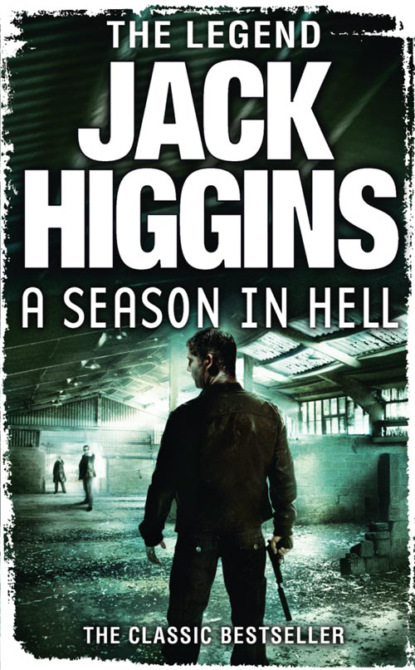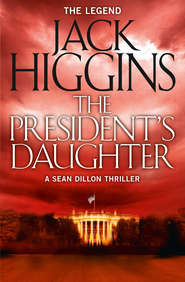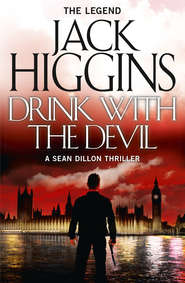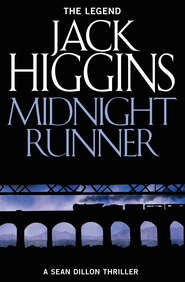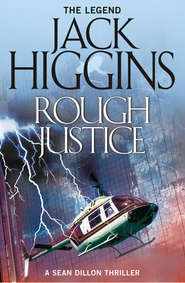По всем вопросам обращайтесь на: info@litportal.ru
(©) 2003-2024.
✖
A Season in Hell
Автор
Год написания книги
2018
Настройки чтения
Размер шрифта
Высота строк
Поля
Which Bird did, omitting any reference to Albert and his drinking, blaming the entire incident on a steering defect.
When he was finished, Smith said, ‘Most unfortunate.’
‘I know, but accidents will happen, sir.’
‘I can’t comment on that, I’ve never had the experience,’ Smith said.
‘So what do we do, sir? Will Mr Jago be picking up the stuff as usual?’
‘Not necessary this time. I’ll take delivery of the goods tomorrow afternoon at three o’clock precisely. You will leave it in luggage locker forty-three at Victoria Station in London.’
‘But the key, sir?’
‘Will be in an envelope in your morning mail. I’ll have a duplicate,’ Smith said.
‘Right, sir.’
‘There had better not be any more accidents, Mr Bird, or Jago will be round to have words, and you wouldn’t like that, would you?’
‘No need for that, sir,’ Bird gabbled.
‘Don’t worry, Mr Bird. The young man was a nobody. They’ve all been carefully selected nobodies. No way of tracing him to any of us. With any luck, this should prove to be a temporary inconvenience. Goodnight.’
Bird replaced the phone and Albert said, ‘What did he say?’
The older man told him. He was brighter now, relieved and reassured at the way Smith had taken things. ‘He’s right. The kid was a nobody. The hearse was stolen. All the paperwork phoney. The scuffers won’t stand a chance on this one.’
‘Scuffers, Mr Bird?’
‘Sorry, Albert, betraying my youth there. That’s what we called coppers in Liverpool when I was a lad.’
Albert nodded. ‘I was thinking, Mr Bird. A locker at Victoria Station. I mean, if I hung around, maybe I could catch a glimpse of him. I did it before, remember, when that Frasconi geezer turned up.’
Bird shook his head pityingly. ‘Albert, I don’t know how you’ve survived this long. Do you really think someone as big as Smith would be that stupid? If you even tried it that bastard Jago would be on you like a vulture. Miracle you got away with it before. They’d find you floating down the Thames with your dick in your hand, and that would be such a waste. Now what have we here?’
‘Tea, Mr Bird.’ Albert poured some from Albert’s favourite silver pot into a delicate porcelain cup. ‘Ceylon, just the way you like it!’
‘Lovely.’ Bird took a sip, then gulped it down gratefully. ‘Nothing like a nice cup of tea, as my old mother used to say.’ He glanced up at Albert, reached up and patted his cheek. ‘You’re a good boy, Albert, but a little foolish sometimes.’
‘A good thing I’ve got you to look after me, Mr Bird,’ Albert said and poured him another cup of tea.
In Paris, at that precise moment, Jago was listening to Smith’s version of events. ‘A balls-up is putting it mildly,’ he said. ‘What do you want me to do?’
‘Nothing for the moment,’ Smith told him. ‘With luck, we might get away with it. Let’s wait and see, but if things go sour, I’ll need you over here to handle the disposal work. You’d better come over to London in the morning. The usual service flat in Hyde Park. I’ll be in touch.’
‘My pleasure, sir.’
Jago replaced the telephone. He stood staring down at it, then started to laugh. It really was too funny for words. He was still laughing when he went into his bedroom to get dressed.
3 (#ulink_5923b273-1b2c-55da-9f32-9cb90b203987)
Brigadier Charles Ferguson had commanded Group Four since its conception in 1972, a large untidy man in his early sixties with a deceptively benign face who affected crumpled suits, his only hint of anything in the slightest sense military his Guards’ tie. Ferguson preferred to work at home when possible, in the Georgian splendour of his Cavendish Square flat, which was where he was the following morning, sitting in comfort beside the Adam fireplace, drinking tea and working his way through a stack of papers, when his Gurkha manservant, Kim, appeared.
‘Colonel Villiers is here, sir. He says it’s urgent.’
Ferguson nodded and a moment later Tony Villiers entered, wearing a black polo-neck sweater, Donegal tweed jacket and faded green cord slacks. His face was white, the eyes very dark, every evidence of real distress there. He was carrying a briefcase.
‘My dear Tony.’ Ferguson stood up. ‘What on earth is it?’
‘This report just came in, sir. Fed into the general computer, it arrived on my desk, following the usual cross-indexing procedure for service personnel.’ Ferguson adjusted the half-moon reading glasses he wore, walked to the window and studied the report Villiers had handed him.
‘Quite extraordinary.’ He turned. ‘But why you, Tony? I don’t understand.’
‘Eric Talbot was my cousin Edward’s boy. You remember him, sir? Half-Colonel in the Paras? Killed in the Falklands.’
‘Good God, yes. So you’re family?’
‘Exactly, sir.’
‘But if the boy was passing himself off as this George Walker, how did the Kent Police establish his real identity so quickly?’
‘The boy was only partially burned. They were able to take his fingerprints and they were on the national computer.’
‘Really?’ Ferguson frowned.
‘The boy was a student at Cambridge – Trinity College. Last year he got picked up in a police raid on the wrong sort of party.’
‘Drugs?’
‘That’s right. It was a user only charge, so he didn’t go to gaol. I’ve only just found this out from Central Records Office at the Yard.’
Ferguson walked to his desk and sat down. ‘Talbot, yes, I remember Colonel Talbot’s death in the Falklands now. Tumbledown wasn’t it?’
‘Yes, he was liaising with the Welsh Guards.’
‘And the father. Baronet as I recall. Sir Geoffrey Talbot.’
‘He had a stroke some time ago when his wife died,’ Villiers told him. ‘He’s been in a nursing home ever since. Doesn’t even know what time of day it is.’ He paused. ‘Look, do you mind if I have a drink, sir?’
‘Of course not, Tony. Help yourself.’
Villiers went to the sideboard and poured a brandy into a cut-glass tumbler. He walked to the window and stood there, peering out. ‘The thing is, he’s my uncle you see, sir. My mother’s brother, not that we were ever close.’
‘Tony, I really am sorry. A good thing the old boy’s not capable of taking this in. I mean, he lost one heir to the Falklands, another in this particularly distressing way.’ He tapped the report. ‘I wonder who inherits the title.’
‘Actually, I do, sir,’ Villiers said.
Ferguson removed his glasses wearily. ‘In normal circumstances such a thing would be a cause for congratulation …’





